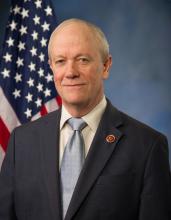In each Ten Minutes with a Changemaker segment, members of the Next Century Cities team sit down with a local, state, or federal representative to explore broadband access in their respective communities. On June 9, 2020, we interviewed U.S. Representative Jerry McNerney. You can watch his full interview here.
Congressman Jerry McNerney has represented California’s Ninth District since 2007. The Ninth District covers parts of California’s San Joaquin, Contra Costa, and Sacramento counties. Representative McNerney serves on the House Committee on Energy and Commerce as well as the House Committee on Science, Space, and Technology.
In 2019 McNerney introduced the Digital Equity Act of 2019, along with his colleagues Assistant Speaker Ben Ray Luján (NM-03) and Congresswoman Yvette D. Clarke (NY-09), which is indicative of his commitment to universal broadband access.
We engaged in a lively conversation with Congressman McNerney. His responses to the questions below shaped our discussion.
What are examples of how the digital divide has manifested itself in your district?
Approximately 34% of my constituents do not have broadband service at home. Although some of this is the result of gaps in broadband deployment, many constituents also face broadband adoption challenges – people are simply unable to afford broadband service.
While many of my constituents faced broadband connectivity hurdles well before the COVID-19 pandemic, the pandemic has shined a bright light on the issue. As school districts shifted to distance learning, they had to scramble to find ways to connect students who lacked broadband service or a device. Despite their leadership and creativity to connect students, there are still many students in my congressional district without broadband service or a device, and as a result, they are completing their schoolwork using physical packets, as opposed to being able to participate in online learning. Similarly, there are many community college students in my district who have been left behind in the digital divide, and some students are now relying on parking lot Wi-Fi to complete their assignments. This is all taking place just outside of Silicon Valley. 
What do you want your constituents to know about Congressional efforts to expand access to high-speed connectivity?
I think there is significant interest in addressing this issue. It’s very much a priority for me in Congress. I have introduced the Digital Equity Act (H.R. 4486), which would establish two federal grant programs to help close gaps in broadband adoption and promote digital skills training. I am also a cosponsor of the LIFT America Act (H.R. 2741), which would provide critical federal funding for broadband deployment. Additionally, I strongly support the Heroes Act (H.R. 6800), which the House passed last month and includes provisions to help Americans get connected and stay connected during the pandemic.
Should universal broadband access be a national priority? If so, what would it take for us to achieve that goal?
Yes, absolutely. To achieve this goal, we must recognize that we need to address gaps in both broadband deployment and adoption—it’s important that we address both, not just one or the other—and make the necessary federal investments.
What is the cost if we are unable to address the digital divide?
It’s a huge loss for our society. We can’t fully unleash the economic opportunities for our constituents, our communities, and our nation until we close gaps in broadband deployment, adoption, and digital literacy.
Next Century Cities is committed to bringing awareness to broadband issues present in communities around the country and elevating those concerns to the national stage in order to effect positive change. To learn more about what we are doing to expand broadband access, check out our news updates.

